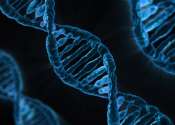Scientists find a method of protection against Alzheimer's disease
A joint study on the Lynx1 protein has revealed that the protein competes with human nicotinic acetylcholine receptors for binding to amyloids, which are the main cause of Alzheimer's development. In the future, the protein ...
Jul 6, 2016
2
261








